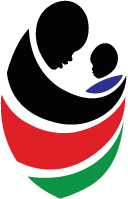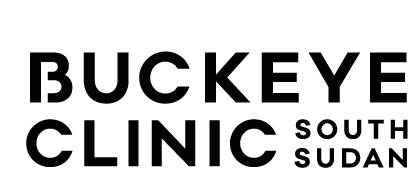Vision + Mission + Goals
Our Vision
The people living in Piol, Twic East County, South Sudan, and surrounding villages will lead healthier lives starting with a focus on improved maternal and child health.
Our Mission
In 1987 Bol Aweng and Jok Dau, then six years old, fled their home village on foot when Piol, South Sudan, was brutally attacked. With compassion, optimism, and determination these “Lost Boys” have turned being robbed of their own childhood into a commitment to help provide essential medical services in this region of the new—and fragile—Republic of South Sudan.
Supported by volunteers and donors in Columbus, Central Ohio, and throughout the country who were moved by their story, we have worked tirelessly since 2009 to help expand and support the first health clinic in Piol. The focus of the Patiou Primary Health Care Center (PHCC) / ”Buckeye Clinic in South Sudan” is maternal and child health care.
We collaborate with the village chiefs, the Village Health Committee and people living in Piol; the South Sudanese government and its regional governing authorities and government-designated partners to advancethis mission and to improve the health-related quality of life of the approximately 10,000 individuals of the Piol-Patiou district.
The organization will help support the PHCC and the health of the people it serves, as resources are available, until such time as the village, the region, and the world’s youngest country are stable, and the State Ministry of Health and Twic East County Health Department have the capacity to competently manage the facility and health services.
Our Goals
Our immediate goal is to respond to the current emergency
In late June and early July 2020, Piol was attacked by a warring tribe that stole cattle, burned nearly all dwellings to the ground, and killed a number of villagers. On the heels of those attacks, the dike along the White Nile river failed causing uncontrollable flooding. Residents of Piol and surrounding areas had to be relocated to Internally Displaced Person (IDP) camps, initially in Bor and Juba, and finally on high ground in Mongalla, northeast of the capital Juba. They will not be able to return to Piol until a new dike is constructed which may require one to three years to complete.
Jok Dau, on the ground in Juba, and Bol Aweng, here in Columbus, are in regular touch with Chief Aweng Deng and the village health leadership who are now in the Internally Displaced Persons camp to assess the needs and field requests for assistance.
We have provided emergency aid during this time of crisis
- to assist with evacuation from Piol including transporting equipment and supplies from the Clinic facilities
- to purchase food and medicine essential for immediate needs
We will continue to support the members of the Piol community with health-related needs when requested by Piol village leadership
- to transport PHCC supplies to the Mongalla Internally Displaced Persons Camp
- to provide tents to set up the PHCC services at the IDP site if requested
- to supplement food aid provided by other organizations working on the ground in Mongalla
- to supply medications to prevent and treat health conditions, health prevention, and other as yet unanticipated health needs that are within our capabilities and authority to provide
- other if requested
When people are able to return to Piol and it is possible to reopen the PHCC, our ongoing and long-term goals are to
- Provide building and equipment repairs and maintenance as needed and requested by the PIOL village chiefs, Village Health Committee, and the citizens of Piol
- Equip clinic staff to conduct
- prenatal check-ups and counseling
- conduct basic laboratory testing
- administer inoculations and essential medications
- and to assist with deliveries and postnatal care
- Develop and supply materials for the clinic staff to educate women of childbearing age and the community about nutrition, disease prevention, and family planning options
- Enable clinic staff to provide outreach and health education and other assistance and services as may be required to ensure the general health and well-being of the citizens of the Piol region.
We are proud to have accomplished our original (2011) goals and subsequent commitments:
- Constructed and equipped a maternal and child health care facility with
- a four-bed maternity ward, an examination room, and a laboratory
- solar panels to power lights and refrigerated storage for vaccines and other perishable medications
- on-site housing for a nurse-midwife and a laboratory technician and other staff
- a kitchen and dining hall to provide meals for resident staff
- a rain catchment system of three 5,000–gallon tanks to provide drinking water
- latrines for use by the staff and persons visiting the clinic
- a perimeter fence to create a 2.5-acre secure compound for the clinic proper and clinic staff
- a patient dorm to house patients whose conditions require an extended stay
- Provided a means of emergency medical transport for patients requiring more specialized care
- Provided a cell phone charging station for village residents
- Supplied food aid during the civil war; 17 shipments totaling 221,725 pounds, from 2014–2017
- Supplied seeds, gasoline, and a tractor to plant crops


